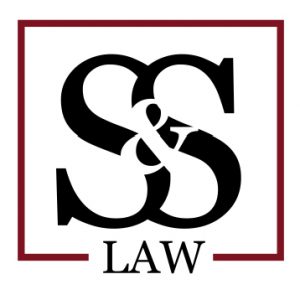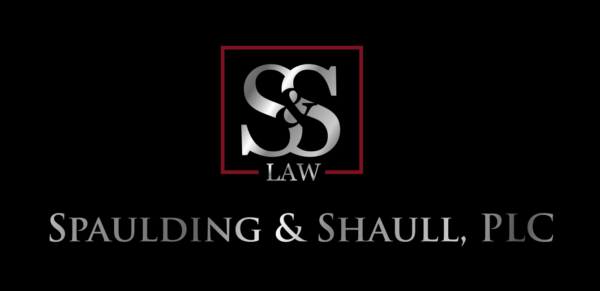Personal Injury
Process & Tips
An insurance claim (abbreviated as “claim”) is your official request for your insurance company to pay for the costs (i.e. property damage) resulting from an accident.
It is important to contact your insurance company and notify them of a potential claim as soon as possible after the accident.
You have a duty to cooperate with your own insurance company. Failure to do so can result in you forfeiting coverage for your accident. Consequently, if the adjuster from your insurance company calls, you may speak with he or she and provide the information that is being requested.
You do NOT have a duty to cooperate with the insurance company of the person who hurt you. Therefore, if contacted by their adjuster, you have no obligation to speak with them. If you are represented by an attorney, you should inform their adjustor that you are represented and provide the adjustor your attorney’s contact information.
- Length of physical therapy or treatment
- Date of which medical treatment is complete
- Date of which you are able to return to work
The compensation amount for each claim depends on many factors, such as:
- Extent of your injuries, and whether or not the injuries are permanent
- Extent of the medical treatment needed
- Cost of medical treatment needed
- Amount of work and income lost due to injuries
Considering these factors, the exact worth of each case can vary a great deal, but Spaulding & Shaull is prepared to develop your claim to try to obtain the maximum recovery possible for the injury or injuries you’ve suffered.
Please fill out our short contact form, or call our office if you have questions, need advice, or would like to set up a free consultation. We will respond as soon as possible to discuss how we can help with your case.
We take cases on a contingency fee basis, which means that our attorney fee is a percentage of the recovery or judgment from your case. No fee is owed to us if no recovery or judgement is obtained. If administrative costs come up during your case, we advance the case expenses. At the conclusion of your case, Spaulding & Shaull will be reimbursed for those advanced case expenses.
The Spaulding & Shaull Law Firm has represented clients throughout Iowa for personal injuries caused by the negligence or misconduct of others. As your personal injury law firm, we are willing and prepared to go to trial on behalf of clients impacted by these events. Being prepared to go to trial is the only way that a client can be sure they are being fully compensated for their injuries, medical bills, lost earnings and pain and suffering. We have also helped the families of those that have lost their lives because of the actions of another.
Our clients have been involved in various types of situations:
- Semi-truck accidents
- Auto accidents
- Motorcycle accidents
- Bicycling accidents
- Drunk-driving accidents
- Dangerous properties
- Dog bites
- Defective products or equipment
- Other situations resulting injury caused by the misconduct of others
We also represent those who have been involved in serious accidents resulting in catastrophic injuries. Catastrophic injuries may include spinal cord injuries, traumatic brain injuries, severe burn injuries, or the loss of a limb. It is important the victims involved in these traumatic events are provided with compensation and support for their injuries.
We have the knowledge and resources to obtain just compensation for clients. We are compassionate and professional individuals that truly believe in what we do. Everyday we see the actions of individuals and insurance companies that cause our clients pain and suffering. We believe in leveling the playing field. We are IOWA attorneys. We know Iowa. We know Iowa juries and judges. There is so much that an individual needs to know to be fully compensated. We provide our clients the information and representation that they need to earn the personal injury settlements they deserve.
The Pre-Suit Claims Process
- Contact law enforcement to make an incident report and keep a copy of the Investigating Officer’s DOT Incident Report to provide to your attorney.
- Keep any witness contact information to provide to your attorney.
- Call your attorney right away: Do NOT provide a recorded statement to anyone—specifically an insurance company or one of their representatives—before consulting with your attorney.
- Do not broadcast the incident of injury or your recovery from injury on social media – this includes descriptions, accounts, and especially photographs.
- Take and keep photographs of the scene, property damage (e.g. automobile damage), and of your injuries (with dates recorded).
- Collect and keep copies of any medical records and bills that you acquire to provide to your attorney.
- Obtain a copy of your own automobile insurance policy, most likely through your insurance agent (most are available to you online now through your particular insurance provider). This is important because your own policy likely provides the following coverages:
- Medical Payments coverage (most often referred to as “Med Pay”):
- Your particular insurance policy may provide coverage to pay for your own medical bills up to a certain limit, oftentimes $5,000 or $10,000. A common misconception is that the Defendant’s/tortfeasor’s automobile insurance will cover your health care expenses. However, this rarely occurs. Rather, the typical scenario involves payment of those bills by your own health insurance carrier and/or through Med Pay coverage provided by your automobile insurance carrier. Then, once a recovery is obtained on your behalf (due to your injuries), these carriers have what is referred to as a “subrogation interest” (or right of reimbursement) out of your recovery for the medical payments they made on your behalf (which were due to the fault of the tortfeasor). This process allows for more prompt, timelier payment of your medical bills, and avoids a situation where you get sent to collections while your medical bills are pending or being outright rejected by the Defendant’s insurance carrier.
- Underinsured/Uninsured (UIM/UM) Motorist coverage:
- In some cases, the person that has injured you may have insufficient insurance coverage/policy limits to appropriately compensate you for the injuries and damages you have suffered. In these instances, your own automobile insurance policy will provide (absent your own written waiver of such coverage under Iowa law) UIM/UM coverage to compensate you for the injuries and damages you have sustained over and above the insurance policy limits of the person that injured you. The amount you pay for your automobile insurance premium accounts for this coverage—to state it alternatively, you pay for this coverage—so you should not be apprehensive (or feel guilty) about utilizing the same to compensate you for your injuries and protect yourself and your future.
- Medical Payments coverage (most often referred to as “Med Pay”):
- Keep track of your missed time and work for eventual calculation of loss of earnings.
- The DEMAND: Once you have completed your medical treatment for your related injuries, notify your attorney. At this point, your attorney will begin gathering and collecting all of your medical records and bills. Once received and reviewed by your attorney, you and your attorney will confer about submitting a demand package. This will most often include the medical bills incurred as a result your injuries; the pain and suffering and loss of function sustained as a result of the same; and a reasonable amount in consideration for future loss related to those items of damage, as well as loss of earnings. The attorney will commonly identify a demand deadline that provides the insurance company adjuster a sufficient amount of time to review all necessary documentation to evaluate the case, but at the same time, not leave your case open-ended.
The Litigation Phase
- In the event that the Defendants fail or refuse to respond to the settlement demand, or that the parties cannot reach an informal resolution, your attorney will institute suit on your behalf by filing a petition in the appropriate Iowa District Court. At that point, formal discovery will commence. This consists of two primary components:
- Written discovery: each side will submit written interrogatories, which are questions to be answered under oath, as well as requests for production of documents, such as medical records, medical bills, incident reports, and past tax return documentation. Much of this information is personal to you in nature (e.g. past education history, past work history, past injury and medical history, etc.) and must be initially responded to by you. At that point, your attorney will review and revise the responses with you, before providing your answers and appropriate documentation to opposing counsel. It is typically after completion of this written discovery that oral discovery begins.
- Oral discovery: this involves the sworn depositions (testimony given under oath in the presence of a court reporter), which almost always includes the involved “parties” (the injured person bringing the suit, and the Defendant who allegedly caused the injury). However, it can also involve depositions of expert witnesses, such as medical physicians who have treated the injured person; damage experts (e.g. economists) providing opinions on loss of future earnings; or even accident reconstructionists or other liability experts offering opinions on how the incident occurred.
- In many cases, after the discovery phase, settlement negotiations recommence. This can involve the process of “mediation,” which is akin to a settlement conference. Here, the parties agree to hire an unbiased/objective third party and come together under one roof in effort to attempt resolution of the case. In this process, the mediator presents your settlement demand and case arguments to the Defendant and their attorney, who will in-turn respond with their settlement offer and case arguments. More often than not, this process is fruitful and results in resolution of the case.
- In the rare instance that the case does not resolve pre-suit or during or after the discovery process, it will proceed to TRIAL. In that event, your case will be submitted to a trier-of-fact, which is a judge or jury depending on the particular case. Prior to trial, you will meet with your lawyer to prepare for your testimony. This preparation will include addressing the circumstances or facts upon which you are anticipated to be challenged; the strengths and weaknesses regarding “fault” in your case (who is responsible for the incident of injury); and the strengths and weaknesses regarding your medical care and treatment—whether it be the subject of “medical causation” for your injuries and the involvement of previous, similar injuries, or whether or not your injuries are “permanent.”
- In most cases, Iowa’s comparative fault statute, Chapter 668, will be applied at trial in your case. This means that, as the injured person, your fault will be proportionately weighed against that of the defendant/tortfeasor. If the wrongdoer is not found to be at least 50% at fault, then you will NOT obtain a recovery in your case. For instance, should your case go to trial and you receive $100,000.00 verdict, with 40% fault assigned to you and 60% assigned to the Defendant, then you would recover $60,000.00, less attorney fees and costs. In the unfortunate event that the jury would find you 51% at fault and the Defendant 49% at fault, then you would not recover.
Not sure if you have a personal injury claim?
Leave us a note and we will get back to you for a free consultation.

